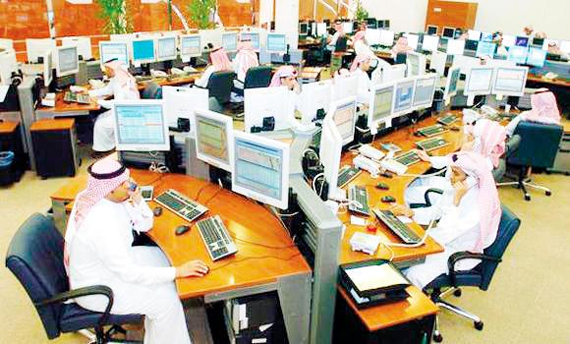
Jeddah, Jun 2: The Labor Ministry has made it mandatory for any organization, whether schools, companies or offices, to reserve vacancies in 19 job categories for only Saudis.
These are: Executive HR manager, HR manager, labor affairs manager, staff relations manager, staff relations specialist, staff relations clerk, recruitment clerk, staff affairs clerk, attendance control clerk, receptionist (general), hotel receptionist, health receptionist, claims clerk, treasury secretary, security, broker, key specialist, customs broker and female sales specialists (women only).
Arab News spoke with CEOs, authorities of schools and companies who confirmed that the 19 positions classified above are related to human resources, customer services, health management, accounts, clearing and forwarding agents and, of course, women-sensitive sales areas.
Mohamed H. Zakaria, CEO and general manager of Saudi Steel Profile Company, said that the 19 job categories that are related to the HR department and reserved for Saudi nationals can easily be short-listed or filtered down to three positions. Only companies like Saudi Aramco, Sabic, SEC, or the STC can employ all categories.
“I think the best way to implement Saudization is not through passing legislation but through the sincere and active participation of the private sector and expatriates. The Labor Ministry should seek the help of expatriates to train Saudis to replace them,” he said.
He also said with a per capita income of more than $ 31,000, Saudi Arabia is ahead of many European countries and with 262 billion barrel of oil reserves (excluding natural gas, metals and minerals), each Saudi owns more than a million dollar’s worth of oil.
Forcing Saudis into the private sector will be a temporary way out. Secondly, hiring extra Saudis and putting them on the payroll will throw many private companies out of business, as it will take at least three to five years to train and replace the expatriate work force, especially at the lower and mid levels.
“In fact, most Saudis approaching us for a job don’t even know what job they are seeking and a lot of job-seekers, including Saudis and non-Saudis with even five years of work experience don’t realize that they fall in the entry-level category,” he explained.
Padma Hariharan, director and head of Novel International Group of Institutions, said that these positions are sensitive and organizations, including the government sector, should ensure that the employees they are hiring are sensitive to the needs of the organization, as all positions are ultimately for Saudis only.
She said the area of concern is improvement of communication in English. As the Kingdom has opened its doors to global investment and is encouraging tourism in a big way, it is mandatory for the Saudis employed to effectively communicate in English.
“Training and qualifications are absolutely mandatory to secure the job. The Ministry of Education (MoE) clearly states that we need to appoint Saudi teachers to teach Islamic education, Qur’an, Saudi history and geography and Arabic. Moreover, the Saudi faculty needs graduates in its field. In order to enhance the quality of the work force and the work environment, I would strongly recommend that the government set up a skilled work force center or hub for training professionals in their respective areas,” she added.
Yosef Al Zanbagi, HR manager of MICE Arabia Group for Exhibitions and Conferences, said the royal order has made it mandatory for Saudis to be hired for management positions. Besides, the posts at the lower end of the scale do not require high qualifications. This is why Saudis prefer these posts, thereby easing the problem of unemployment among the citizens.
“Yes, of course training is important. Basically Saudi employees need an educational qualification that matches the position. They then need three months of on-the-job training. In addition to IT knowledge, English, and HR and Management training sessions, the companies usually change the job title or hire expatriates in positions lower than the management level but they perform the same tasks. And some companies do not need these positions. However, after the last royal order there will be no room to circumvent these issues,” he added.
Dr. Hasan Zaman, CEO of Midrar enterprises, said Saudi employers have become more accepting of the fact that hiring foreign labor is not a long term solution.
“Many organizations have started taking steps to send their employees for training and have not used monetary incentives to encourage them. These steps will ensure that a skilled workforce is employed in their organizations,” he said.
The 2013 labor policy has eradicated doubts about the new laws to be implemented. With the exception of posts exclusively marked for Saudis, all other positions for physicians, engineers, nurses, educators, designers, administrators, and even the greater spectrum of technicians, are free to be occupied by non-Saudis.






Comments
Add new comment